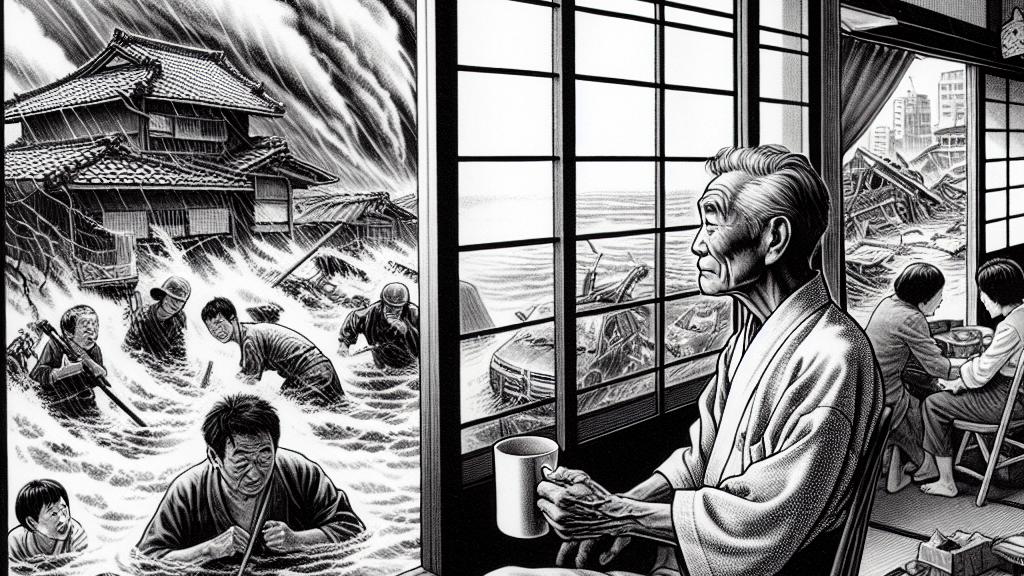How Not to Evacuate: The Contrarian Grandpa vs. Nature's Fury!
Overview
- A grandfather defied evacuation orders during the Isewan Typhoon, leading to his survival.
- Tragic outcomes faced by evacuees due to levee failures highlight the unpredictability of disasters.
- This story explores the psychology of contrarian behavior and its implications for crisis management.

The Unfolding of the Isewan Typhoon's Catastrophe
The Isewan Typhoon, which devastated Japan in 1959, is etched in history as one of the worst natural disasters, claiming over 5,000 lives and leaving countless others affected by widespread flooding and destruction. As government officials urged communities in vulnerable areas to evacuate, one grandfather, known for his defiant nature, chose to ignore the warnings. This choice was deeply consequential; while many who evacuated found themselves facing disaster due to the catastrophic breach of levees, he remained at home and ultimately escaped the wrath of the storm. His story serves as a stark illustration of the unpredictable nature of human behavior in crises and poses essential questions about how best to respond to emergency situations.
Exploring Contrarian Behavior in Crisis Situations
The grandfather's decision exemplifies contrarian behavior, a psychological response where individuals resist popular opinion or authority, particularly in uncertain situations. Several factors may underlie such behavior: past experiences with authority, cultural attitudes towards governance, or a strong belief in self-reliance. This narrative encourages introspection regarding the balance between personal judgment and collective action in the face of danger. How often do we trust our instincts over established safety protocols? Moreover, this story invites discussion about the need for communities to cultivate environments where diverse perspectives are valued, fostering both individual autonomy and collective safety through trust and communication.
Key Lessons for Future Emergency Preparedness
The events surrounding the Isewan Typhoon offer vital lessons for developing effective disaster response strategies. It highlights the importance of clear communication from authorities regarding evacuation plans, ensuring that warnings are seen as trustworthy. Strategies should include community outreach, education on emergency preparedness, and avenues for feedback to address concerns. Furthermore, incorporating psychological insights into planning can enhance compliance; understanding that some individuals may resist evacuation orders necessitates tailored approaches that address these dynamics. Ultimately, fostering community resilience requires a balance of prepared infrastructure, reliable information channels, and a culture of trust, enabling everyone to act effectively during an emergency. This enduring lesson from the Isewan Typhoon is a call to action for individuals and communities alike to prioritize collective safety while recognizing the complexity of human motivations.

Loading...